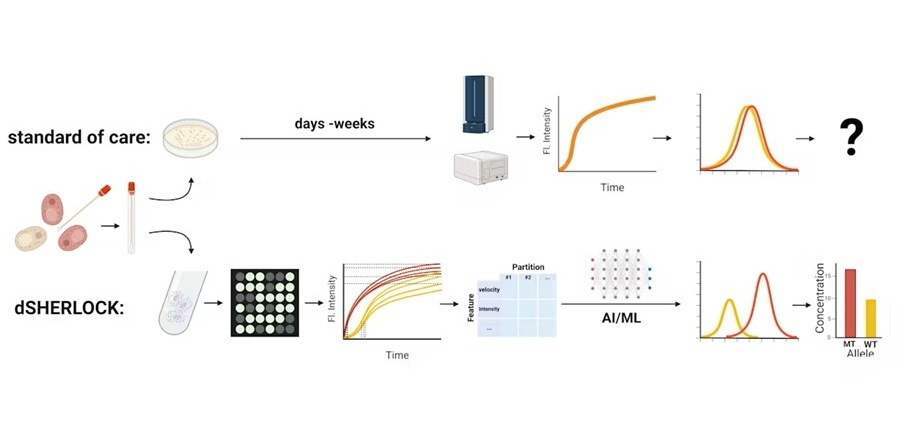DNA-based Microarray Identifies Dynamic Microbes
By LabMedica International staff writers
Posted on 13 Oct 2011
Two methods that are independent of polymerase chain reactions (PCRs) have been developed to identify microbial communities. Posted on 13 Oct 2011
The methods use a high-density microarray with direct hybridization of 16S rRNA (dirRNA) or ribosomal RNA (rRNA) converted to double-stranded complementary DNA (dscDNA).
Scientist from Lawrence Berkeley [US] National Laboratory (Berkeley, CA, USA) identified the individual microbial taxa in a sample via the genetic signatures of the rRNA, which is the genetic component of the ribosome, the machinery within a biological cell that makes proteins. They used one archaeal and seven bacterial cultures grown to a cell density of approximately 108 to 109 cells/mL overnight. The microbes were detected using is a square-shaped microarray chip, with a dimension of approximately 25 mm and called the PhyloChip. The latest version is packed with more than a million individual probes and can be used to detect quickly, accurately, and comprehensively the presence of up to 50,000 different species of bacteria and archaea in a single sample from any environmental source, without the need of culturing.
One drawback to this method is that RNA binds much more tightly to the PhyloChip probes than is typical for DNA. This results in increased background noise and variability that can pose challenges. In response, the scientists developed a second PCR-free method in which the rRNA is replaced with a complementary DNA sequence (cDNA). The cDNA complement is then synthesized to create a double-stranded cDNA fragment that closely mirrors the properties of a PCR amplified 16S rRNA gene fragment. The PhyloChip is manufactured by Affymetrix Corp. (Santa Clara, CA, USA).
Gary Andersen, PhD, a microbial ecologist with Berkeley National Laboratory and senior author of the study, said, “Each method represents a simple and economical way to directly query microbial communities in natural environments and each offers the additional advantage of detecting the most metabolically active microbes in a community, the ones most likely to attenuate toxins, drive biogeochemical cycles, or proliferate in disease states.”
The study was published in the September 2011 edition of the journal Applied and Environmental Microbiology.
Related Links:
Lawrence Berkeley National Laboratory
Affymetrix













